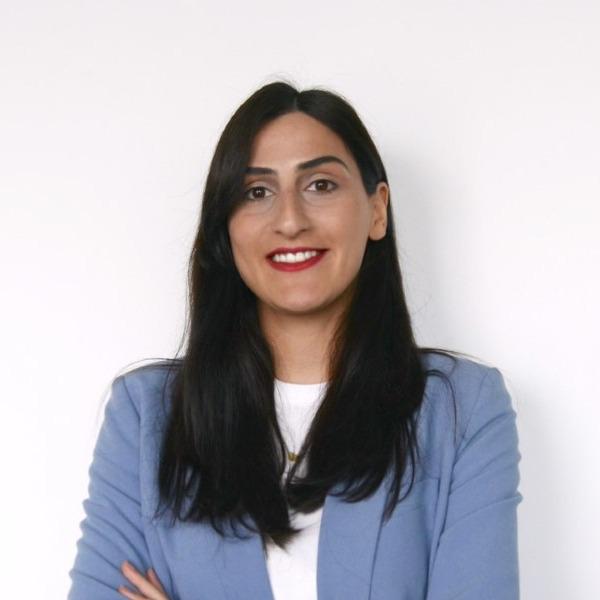New data from the 2026 Indian American Attitudes Survey show that Democratic support has not fully rebounded from 2020.
- +1
Sumitra Badrinathan, Devesh Kapur, Andy Robaina, …

Source: Getty
As the United States retreats from its role as a global democracy promoter, there is simultaneously a leadership gulf and a shift in the norms around democracy and autocracy.
The world is in the midst of a democratic recession that has endured for more than a decade, with fewer democracies than autocracies for the first time in more than twenty years. The decline of democracies around the world shows that autocrats have learned many lessons since the advent of the third wave of democratization that began with Portugal’s transition in 1974. Modern autocrats have adapted to the times by harnessing disinformation, selectively repressing, and banding together to slow democratic spread, among other tactics. Yet pro-democracy activists and international democracy promoters still understand very little about how to maximize the probability that fragile democratic transitions can succeed. Several of the democracies that emerged with the third wave have since backslid. But despite the gloom and doom around the autocratic revival sweeping the globe, efforts at democratization persist. Thus, it behooves experts and practitioners to understand how to better assist young democracies in overcoming the challenges of the early transition period.
The first decade of a country’s democratic transition is inherently fragile. Pro-democracy actors must contend with political uncertainty, economic shocks, and anti-democratic spoilers, which all have the potential to upend the delicate process of democratic consolidation before it is complete, a process that can take years or even decades. Yet external democracy promoters often move on once a country has completed its first democratic election or ratified its first democratic constitution. The ability of nascent democracies to find the support needed to consolidate is especially threatened today by the retreat of the United States from its historic role as one of the largest global sources of democracy support. Amid these challenges, however, efforts to democratize persist. Funders of democracy promotion, such as those in Europe and Japan, international democracy NGOs, and especially activists at the frontline of the struggle to democratize, continue to attempt to advance democracy around the world and must learn from the successes and failures of the third wave to ensure success in the long run.
The ability of nascent democracies to find the support needed to consolidate is threatened today by the retreat of the United States from its historic role as one of the largest global sources of democracy support.
To better understand what has worked to both engender and codify democracy in formerly authoritarian states, the Carnegie Endowment for International Peace convened a group of global experts on democratic transitions in Lisbon in April 2025. The group set out to understand how both the structural factors as well as the agency of pro- and anti-democracy actors (both external and internal) during the earliest stage of a transition can help prevent democratic backsliding and assist policymakers interested in devising effective and efficient strategies to support young democracies.
In examining cases of early democratic transitions around the world, several themes emerged that offer lessons for future democratic transitions.
Following a democratic transition, the public can quickly forget the pain of the prior authoritarian regime, particularly in the face of the socioeconomic challenges and instability that can accompany democratic transitions. This can result in nostalgia for authoritarianism, impeding democratic consolidation. For example, in Tunisia, the failure of the democratic government to address economic challenges and rampant corruption led many Tunisians to refer to the democratic transition as the “black decade,” despite a liberal constitution, free and fair national and local elections, and a vibrant civil society. The Tunisian public was willing to support President Kais Saied’s self-coup in 2021, in part because of an authoritarian nostalgia that ignored rampant human rights abuses under the pre-revolutionary regime.
Democracy promoters can fuel authoritarian nostalgia when they fail to consider the demands of the public. Authoritarian nostalgia emerged in the Philippines when the newly democratic government failed to deliver on improving the economy, eliminating corruption, or breaking the hold of elites in politics, as demanded by the public in the demonstrations that led to Ferdinand Marcos’ ouster. Because the substantial costs associated with running an electoral campaign shut out all but the wealthy from elected office, for many ordinary citizens, true representation and political participation continue to be out of reach under the post-Marcos government. In light of this, many became disillusioned with democratization, fueling the rise of authoritarian leaders like Rodrigo Duterte.
Authoritarian nostalgia emerged in the Philippines when the newly democratic government failed to deliver on improving the economy, eliminating corruption, or breaking the hold of elites in politics.
The mismatch between the public’s expectation of truly participatory government and the reality of democracy in the Philippines reflects another trap that democracy promoters often fall into: either defining democracy too narrowly and focusing solely on elections or too abstractly and defining democracy in a way that makes it meaningless to ordinary citizens. In the Philippines, a narrow understanding of democracy as free speech and elections disguised the weaknesses in the post-transition political system. Such mismatched understandings of democracy are often behind the failure of democracy promoters to meet the demands of their people, fueling authoritarian nostalgia.
Thus, while a democratic transition may create new institutions or open the space for free expression, if people do not feel the positive effects of democracy on their own lives, in their own terms, or if the newly created institutions do not meaningfully allow for public participation, they may develop a misguided nostalgia for the past.
Workshop participants also emphasized the importance of establishing and internalizing a democratic political culture. Democratization cannot stop at state institutions. Rather, shared values, beliefs, norms, and attitudes must be established within a society to support democratic life. A democratic culture can manifest in the conduct of individuals and groups in a number of ways, such as by maintaining respect for differing viewpoints, promoting transparency and accountability, resolving conflicts peacefully through compromise and negotiation, or building trust in democratic institutions.
Establishing these norms and values can be particularly challenging amid high levels of polarization but are essential for the long-term viability of a democracy. Latvia exemplifies how establishing a more inclusive culture can strengthen democracy. Although the “Singing Revolution” that emerged in the late 1980s to protest Soviet rule was initially non-partisan, post-independence, Latvia moved to “de-Russificate” itself. This involved overtly excluding the sizeable Russian minority population through harsh citizenship and language policies. This divide between ethnic Russians and Latvians developed as Latvia suffered from low levels of trust generally, which led to a decline in participation in political parties and civil society. However, external actors were successfully able to push Latvia’s political culture in a different direction. Incentivized by a desire to gain NATO and EU membership, Latvia worked to develop a democratic political culture that helped create a flourishing independent media landscape and eventually overturned the restrictive, anti-Russian language and citizenship laws, strengthening Latvian democracy as a whole.
Creating a culture of accountability and respect for the rule of law is also important for mitigating threats to democracy, as demonstrated by the recent coup attempt in South Korea. After former president Yoon Suk-yeol sought to institute martial law as part of an attempted autogolpe (or self-coup), South Koreans came out in force to protest, including members of Yoon’s own party. This foiled Yoon’s plan. However, Yoon’s plot also in some ways demonstrates the failure of democratic South Korea to fully create a culture of accountability. Of the nine presidents who have been elected under South Korea’s Sixth Republic, three were arrested for corruption following their presidency, while the brother and aide of a fourth were arrested for bribery. Although the successful arrests and convictions demonstrate a capacity for reactive accountability, they also show that corruption and attempts to commandeer state power for personal benefit are normalized.
Democratic transitions necessarily disrupt the prior balance of power. Thus, how the new institutions distribute power across different factions can have a significant role in the success or failure of a transition.
The military’s integration into the new political system is particularly important due to its capacity to deploy violent force. In Portugal, the military initiated the democratic transition in 1974 through a coup after becoming frustrated by the ongoing human and financial cost of maintaining the country’s colonies in Africa. An offshoot of the military took over the political leadership of a democratizing Portugal, promising to abolish the secret police and paramilitary groups, restore civil liberties, and oversee the election of a constituent assembly. This raised fears that the military would hold on to power, creating a military dictatorship rather than a democratic government. However, the military leadership supported reforms during the late 1970s and early 1980s that formalized the subordination of the military to civilian authorities for the first time, due to internal pressure from social unrest and economic challenges, and external pressure from NATO allies and the prospect of European integration. This paved the way for the full demilitarization of political life and the consolidation of Portugal’s democratic transition. Checks on military power, especially when the change in government is military-driven, are especially important in democratic consolidation.
Newly democratic governments must also consider how and whether to integrate former authoritarian leaders. Despite his removal from power via referendum in December 1989, former Chilean military dictator Augusto Pinochet remained politically active and continued to serve as commander of the armed forces and later became a senator for life. With Pinochet on the scene, Chile’s transition struggled with addressing his regime’s human rights abuses. Chile’s failure to adequately address the role of military in politics hampered efforts at consolidating its democratic transition during the first decade. However, once Pinochet was removed from political life and brought in front of the justice system for the human rights abuses committed under his regime, Chile was able to begin a new chapter of its transition and today is one of the more successfully consolidated democracies in Latin America.
A challenge for young democracies is how to rein in the executive to prevent a return to authoritarianism.
Another challenge for young democracies is how to rein in the executive to prevent a return to authoritarianism. In Ghana, former president Jerry Rawlings initially came to power via a military coup but later oversaw a democratic transition. The end of the Cold War brought increased pressure to democratize from major donors. As a result, coupled with increasing agitation from Ghanaian democracy activists, Rawlings felt that he had to move Ghana toward democracy to maintain critical funding and popular support. Rawlings was motivated, in part, by a desire to retain his power and to solidify his legacy amid a changing set of norms. Thus, even as he facilitated Ghana’s transition to democracy, Rawlings also consolidated executive power under the presidency. For example, Supreme Court justices are appointed by the president, and the constitution places no caps on the number of justices seated on the court, reducing the efficacy of the Supreme Court as a check on executive power. Arguably, had democracy activists pushed harder for a more decentralized balance of power, Rawlings may have acted as a spoiler rather than a supporter of democratization. However, thirty years later, this choice now undermines Ghanaian democracy. The Ghanaian Parliament and Supreme Court are weak and viewed as corrupt. The executive branch is also widely seen as corrupt, enabled by the inability of the other branches of government to serve as a true check on power.
In each of the cases examined during the workshop, global democracy promoters—primarily the United States and Europe—were influential to some degree during the early transition years. Mechanisms of influence can range from cutting off assistance in order to push back against anti-democratic behavior, as was the case in Ghana, to conditioning European Union accession on democratic principles, as was the case in Poland and Latvia. Across many of the cases, external actors found impact through diffusion. Would-be democrats and autocrats alike learn from their neighbors and partners, so democracy promoters can be especially influential by creating and reinforcing global norms around democratic principles. The United States and Europe have also provided substantial funding and technical support for democracy promotion projects throughout the world, helping fledgling democracies run elections, develop independent media, and write constitutions. While external actors can never replace the role of local actors in both bringing about and consolidating a democratic transition, they can incentivize and reinforce local actors in their efforts and provide material support.
Two of the project’s cases—Tunisia and Poland—are today experiencing threats to democracy that have been met with different approaches by the international community, resulting in different outcomes. In Tunisia, Saied unwound nearly a decade’s worth of democratic progress within two years of his July 2021 autogolpe: disbanding the parliament, suspending the constitution, and consolidating power into the executive. Saied was able to get away with his autocratic takeover in part because of a lack of pressure from the United States and Europe, who had been vociferous supporters and major financial backers of the initial democratic transition. Additionally, Saied leaned on public frustration with political incumbents and economic malaise that accompanied the COVID-19 pandemic to inculcate a strong authoritarian nostalgia. While Tunisia can no longer be classified as a democracy, local activists—many of whom are now forced to operate in exile—can work with international NGOs to rebuild a democratic political culture and develop a counter-narrative that emphasizes the rampant corruption and human rights abuses of the authoritarian period.
In Poland, the right-wing populist Law and Justice Party (PiS) undertook a series of anti-democratic actions over the past decade that eroded the country’s judicial independence and undermined the rule of law and the separation of powers. As a member of the European Union, Poland’s anti-democratic trajectory received far more scrutiny than Tunisia’s and was exposed to a special set of tools to hold the country accountable—although they were not always deployed effectively. In 2017, the EU invoked Article 7 sanctions for Poland’s attacks on judicial independence and “breaches of EU law,” referring Poland to the Court of Justice of the European Union. The EU also withheld tens of billions of dollars of foreign aid from Poland in response to the democratic backsliding. Numerous international NGOs also spoke out against attacks on Poland’s judiciary. This consistent and significant pressure helped buoy opposition activists and Poland’s transition recovered somewhat with the 2023 parliamentary elections that saw both very high voter turnout and the defeat of the PiS by a democratic opposition coalition, allowing the EU to terminate the Article 7 process.
The importance of institutional design, as discussed in the workshop, is clear in the Polish case, in which the PiS was able to easily undermine the judiciary. Here, local opposition figures can work with democracy promoters to shore up democratic institutions and build safeguards to prevent a repeat of the PiS’s agenda. Poland remains under some European sanctions, which require further judicial reform to remove. Additionally, the 2025 presidential elections brought conservative Karol Nawrocki, who was backed by U.S. President Donald Trump, to power, defeating the liberal candidate and opening up the door for a potential return of the PiS to power in the 2027 parliamentary elections. Thus, democracy promoters should not be distracted by the recent democratic progress and instead continue to work with Polish civil society to shore up the judiciary and separation of powers.
Today, as the United States retreats from its role as a global democracy promoter, there is simultaneously a leadership gulf and a shift in the norms around democracy and autocracy.
Today, as the United States retreats from its role as a global democracy promoter, there is simultaneously a leadership gulf and a shift in the norms around democracy and autocracy. The massive cuts to U.S. spending on democracy and governance are likely to hurt local democracy activists who rely on external support to help craft new democratic institutions and develop and entrench a democratic political culture at home. And the popularity of Trump and his autocratic behavior feeds authoritarian nostalgia that questions the validity of democracy and ability of democratic structures and values to address the social and economic problems many countries face. In the wake of this shift in the willingness and ability of external actors to support democratization, it is more important than ever that those attempting to build and buttress democracies are clear-eyed and well-informed on the threats they face.

Senior Fellow, Middle East Program
Sarah Yerkes is a senior fellow in Carnegie’s Middle East Program, where her research focuses on Tunisia’s political, economic, and security developments as well as state-society relations in the Middle East and North Africa.
Erica Hogan
Former Research Assistant, Global Order and Institutions Program
Erica Hogan was a research assistant in the Carnegie Global Order and Institutions Program.
Carnegie does not take institutional positions on public policy issues; the views represented herein are those of the author(s) and do not necessarily reflect the views of Carnegie, its staff, or its trustees.
New data from the 2026 Indian American Attitudes Survey show that Democratic support has not fully rebounded from 2020.


Sumitra Badrinathan, Devesh Kapur, Andy Robaina, …
New thinking is needed on how global civil society can be protected. In an era of major-power rivalry, competitive geopolitics, and security primacy, civil society is in danger of getting squeezed – in some countries, almost entirely out of existence.


Richard Youngs, ed., Elene Panchulidze, ed.
How significant are statements by senior U.S. officials about supporting democracy abroad in the context of a foreign policy led by a president focused on near-term transactional interests?


Thomas Carothers, McKenzie Carrier
Integrating AI into the workplace will increase job insecurity, fundamentally reshaping labor markets. To anticipate and manage this transition, the EU must build public trust, provide training infrastructures, and establish social protections.

Amanda Coakley
Lessons from Korea’s political right.

Darcie Draudt-Véjares